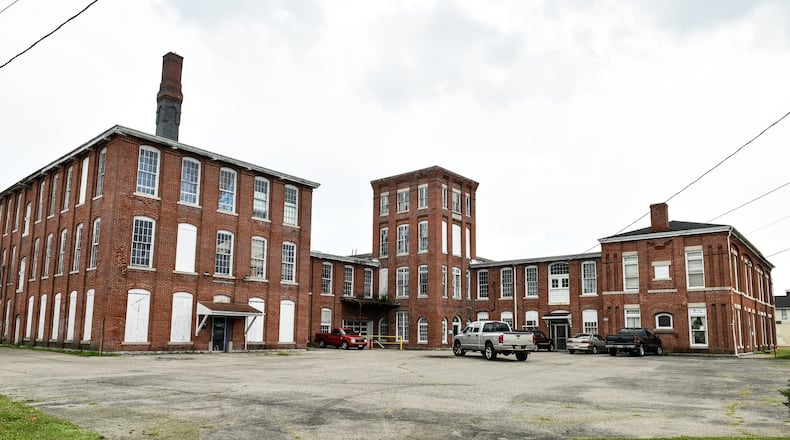- Public-safety buildings, such as a new police headquarters with a municipal court and new fire station location, $17.5 million;
- Traffic and infrastructure, such as storm-sewers and North Hamilton Crossing, $9.5 million;
- Economic-development projects, $6.6 million, including $4.5 million for “catalytic projects” such as $1.5 million for the Shuler & Benninghofen Woolen Mill development in Lindenwald. Also, $1.1 million in roof improvements for the RiversEdge amphitheater and $1 million in improvements to the city-government tower at 345 High St.; and
- Mental health and homelessness, none of the $33.6 million assigned. Smith said the city would work with county officials to determine a coordinated plan.
Council Member Michael Ryan called on his colleagues to call a special meeting “to discuss this only.”
“I think that would be extremely beneficial because this conversation could last 10 hours,” Ryan said, adding a public meeting solely on the topic would add “pure transparency for our residents, our businesses and organizational purposes.”
“That way, I feel we can get some of the residents involved,” Ryan said. “I think their voices probably should be heard. Same thing we did with the street levy,” with residents having input about which streets should be paved in their neighborhoods.
Some residents have called for more street repairs to catch up on decades when few significant repairs were made.
Council Member Timothy Naab agreed with Ryan: “I think it’s incumbent on to explore options. It’s certainly great to have guidelines, as Joshua has proposed this evening.”
“I’ve already had calls from people that are saying to us, ‘We have been gifted with this extraordinary amount of money. How will it be spent, how will it be allocated?’ ” Naab added.
Mayor Pat Moeller said he was glad Smith included spending on mental health and homelessness, although no dollar amount was suggested, “because it is a countywide issue.”
Spending-suggestion details
Below is a closer look at what Smith offered in his spending suggestions for spending from the $1.9 trillion federal funding.
In the public-safety spending, he proposed spending $4 million to replace the antiquated fire station 26 in Lindenwald. A better location for a new station would be along Ohio 4 near the city’s public-works garage to improve emergency response times to homes and businesses. The city is looking for property in that area.
Smith proposed spending $13.5 million to build a new police headquarters, and moving the municipal court to that location, likely on city-owned property on Hanover Street, near the Butler County Sheriff’s office. Proximity to the county jail would reduce inmate-transportation costs. The $13.5 million would represent 35% to 45% of the costs of construction, he said.
Smith called for $2.5 million being spent on storm-water sewers and alleviate flooding. With the city paving more streets because of the street-repair levy, many streets also have storm-sewers that need to be worked on, he said.
He proposed putting $7 million toward North Hamilton Crossing, the proposed bridge across the Great Miami River near the Black Street Bridge that would also cross the CSX railroad tracks near the polluted former Chem Dyne property. That amount is estimated to be 10% of the project’s cost, he said. Because construction will not happen in the next five years, he wants to restrict that money for a debt-service restricted account, and afterward committed solely to the highway construction.
Smith suggested spending $4.5 million on catalytic development projects, such as the woolen mill in Lindenwald. He also suggested spending $1.1 million to rebuild the roof at RiversEdge amphitheater, which is so leaky, concerts have to be moved beneath a city parking garage when it rains. He also proposed $1 million for city-government-tower improvements.
Smith told council the summertime RiversEdge concerts generate “profits” most years that are rolled back into future concert spending, but the concerts lost money last year. The primary revenue source is beer sales, and that’s how the music acts are paid. “That’s why they recruit the acts they do, because they’re beer-drinking crowds, which will replenish the money and keep the concert series moving forward.”
The concerts are important in drawing outsiders to the community, Smith said. He noted Covington and Newport, as well as downtown Cincinnati are creating outdoor concert venues.
Other projects listed on his slide presentation were $1.5 million for the former Beckett Paper property; and $1.5 million for the Anthony Wayne Hotel.
Smith said he already has authorized $600,000 to be spent using city general-fund money to move the historic CSX train station, and has put a place-holder for another $1.5 million to renovate one of the buildings. But he said if council decided to use ARPA funds for the $1.5 million, that could happen.
For the city-government tower, the $1 million would replace chillers and create a customer-friendly lobby to serve the public and help them know where various offices are located.
About the Author

